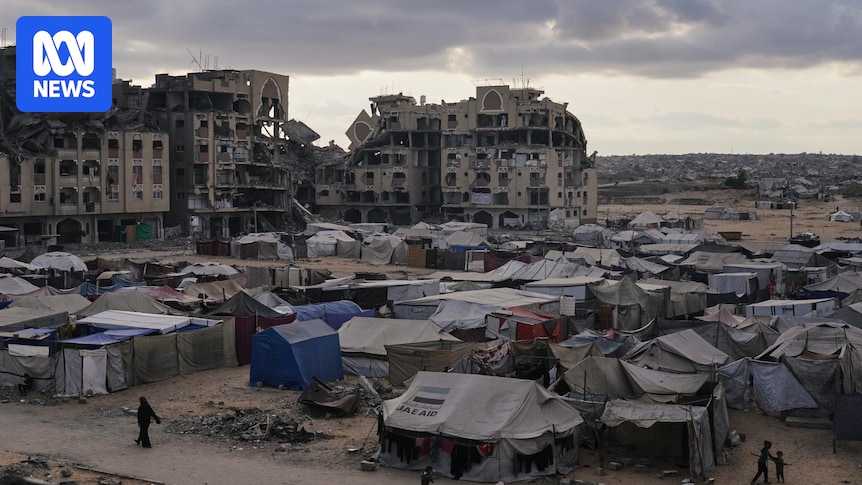
The United States Department of State has issued a stark warning regarding a potential breach of the ceasefire agreement between Israel and Hamas. According to the department, there are “credible reports indicating an imminent” attack by Hamas against Palestinian civilians in Gaza. This development threatens to undermine the fragile peace established through international mediation efforts.
In a statement released on Saturday, the US State Department emphasized the gravity of the situation, stating, “This planned attack against Palestinian civilians would constitute a direct and grave violation of the ceasefire agreement and undermine the significant progress achieved through mediation efforts.” The statement further urged Hamas to adhere to its commitments under the ceasefire terms.
The guarantor nations, including Egypt, Qatar, and Turkey, have been notified of the potential violation. While specific details about the planned attack were not disclosed, the United States and its allies have expressed their determination to protect the people of Gaza and maintain the integrity of the ceasefire. “The United States and the other guarantors remain resolute in our commitment to ensuring the safety of civilians, maintaining calm on the ground, and advancing peace and prosperity for the people of Gaza and the region as a whole,” the statement concluded.
Political Tensions and Diplomatic Responses
The announcement comes as tensions in the region remain high. US President Donald Trump previously issued a stern warning on social media, stating, “If Hamas continues to kill people in Gaza, which was not the deal, we will have no choice but to go in and kill them.” However, he later clarified that he would not deploy US troops to Gaza, despite the severity of his rhetoric.
President Trump’s statements marked a shift from his earlier stance, where he appeared indifferent to the actions of Hamas, describing them as targeting “a couple of gangs that were very bad.” This change in tone reflects the complex diplomatic landscape and the challenges faced by international actors in maintaining peace in the region.
Hamas Hands Over Hostage Remains
The US State Department’s alert coincided with reports from Israel that Hamas had transferred “two coffins of deceased hostages” from Gaza. Israeli Prime Minister Benjamin Netanyahu has been increasing pressure on Hamas to expedite the return of the remaining bodies as part of the ceasefire agreement.
Earlier on Saturday, Israel announced that the Rafah crossing, Gaza’s only gateway to the outside world, would remain closed “until further notice.” This decision is directly linked to Hamas’s progress in releasing the remains of hostages. The crossing was initially expected to reopen on Sunday, but this has now been postponed.
Hamas has so far handed over the remains of 12 out of 28 deceased hostages, a critical step in the ongoing ceasefire process aimed at ending two years of conflict. The group cites the devastation of the Gaza Strip and Israeli military control of certain areas as reasons for the delays in the handover.
Humanitarian Concerns and International Implications
The humanitarian situation in Gaza remains dire, with the Health Ministry reporting that newly recovered bodies have pushed the Palestinian death toll above 68,000. Thousands remain missing, according to the Red Cross, underscoring the ongoing humanitarian crisis in the region.
Meanwhile, Israel faces criticism for returning the bodies of Palestinians without names, only numbers. Gaza’s Health Ministry has been posting photos of these bodies online, hoping that families will come forward to identify their loved ones. “Just like they took their captives, we want our captives. Bring me my son, bring all our kids back,” pleaded Iman Sakani, whose son went missing during the war.
As part of the ceasefire agreement, Israel returned 15 bodies of Palestinians to Gaza on Saturday, bringing the total number of returned bodies to 135. The ongoing exchanges highlight the fragile nature of the ceasefire and the complex negotiations involved in maintaining peace in the region.
Looking Ahead
The potential breach of the ceasefire by Hamas poses significant risks to the stability of the region. The international community, led by the United States and other guarantor nations, remains committed to preventing further violence and ensuring the safety of civilians. However, the path to lasting peace is fraught with challenges, and the situation in Gaza continues to demand urgent attention and action.
As diplomatic efforts continue, the world watches closely, hoping for a resolution that will bring peace and stability to a region long plagued by conflict and suffering.





